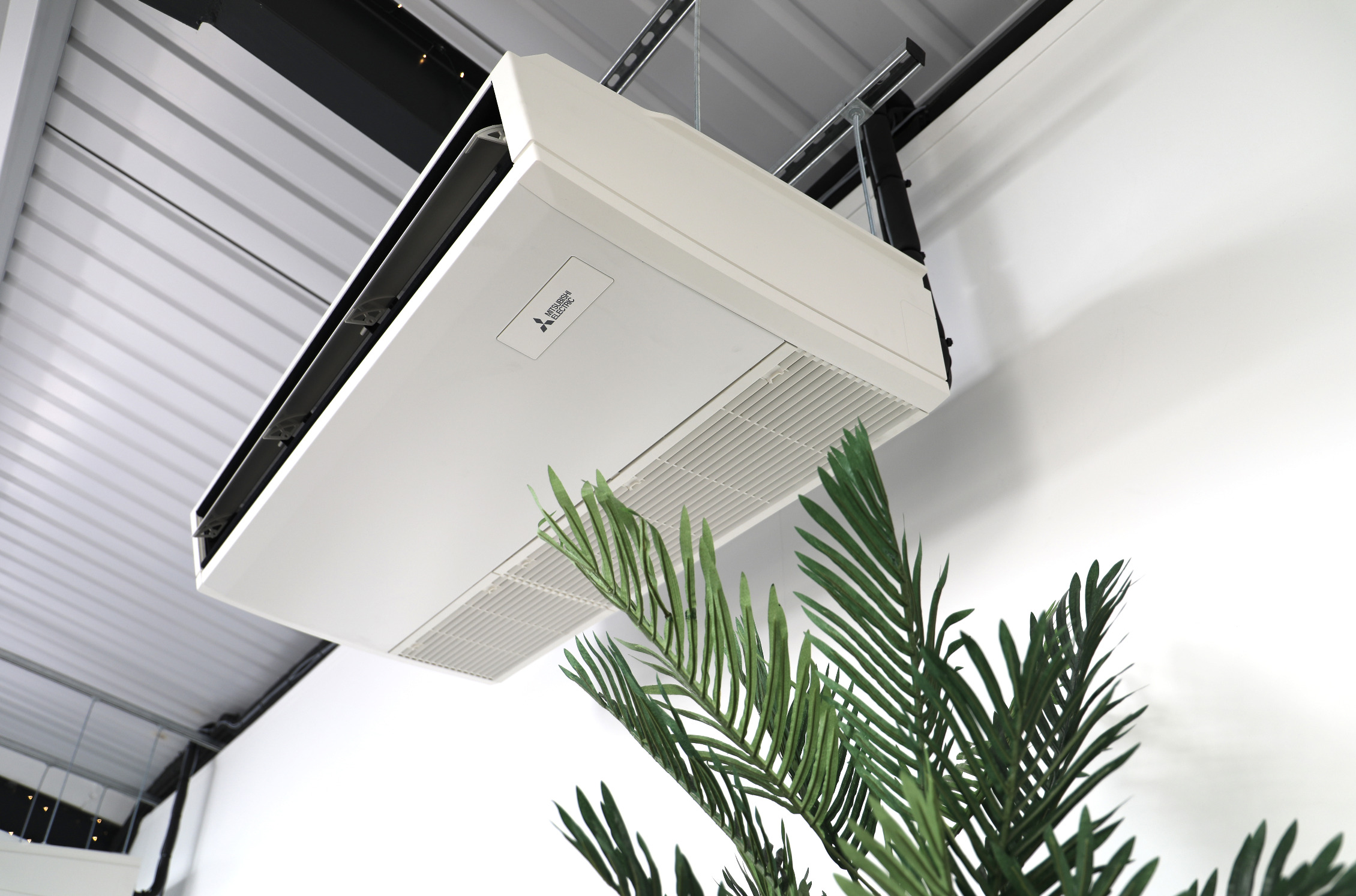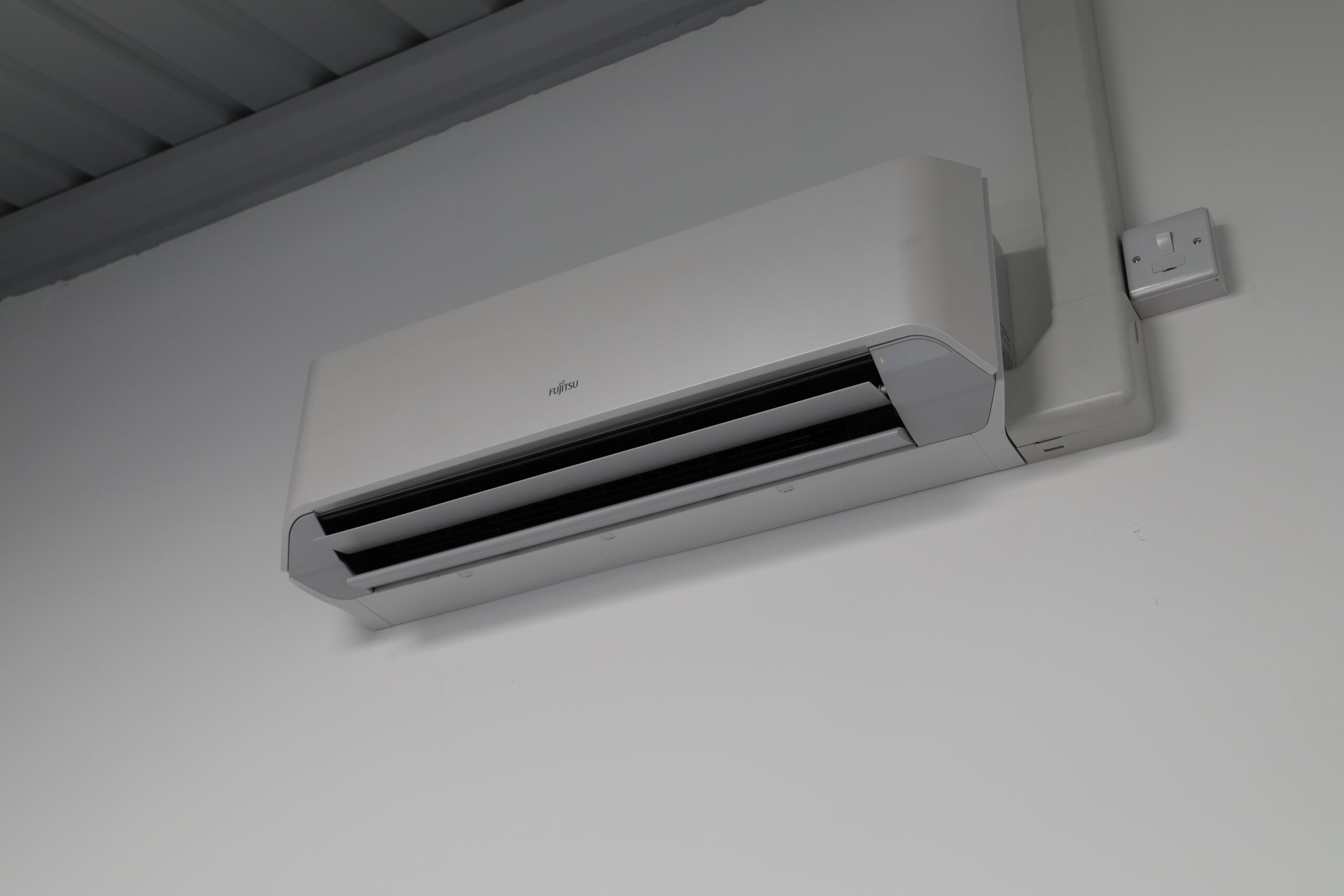This is because well designed, maintained and installed air conditioning systems create good environments for staff, customers, and operations, and enable the efficient use and recycling of energy.
Good air conditioning keeps workplaces and other commercial interiors pleasant and healthy. This boosts staff health, productivity and retention and customer experience and dwell time. Optimum conditions are also good for keeping products, processes and equipment in best condition and operation.
A good commercial air conditioning system will also enhance your businesses’ financial bottom line through efficient energy-use and recycling. This ultimately reduces your business or property’s use of resources and its environmental impact.
Commercial air conditioning is the cooling, heating and dehumidifying of air in commercial and public properties such as offices, factories, storage facilities, retail, hospitality, cinemas, leisure centres, universities and schools. Cold room and freezer rooms are also related to this field and are vital for sectors such as fresh and frozen food, abattoirs, butchers, pharmaceuticals and data centres.
Air conditioning can be used in small and large interior spaces to keep temperatures and air quality at the desired level for staff, visitors and operations. Air conditioning is a process which recycles heated or cooled air within an interior space to maintain the desired temperature. It can be known as AC, A/C or air con.
There are lots of different types of air conditioning systems available with different capacities to heat and cool and options on settings. So, it’s wise to get professional, independent advice to identify the best systems for your property and business operations.

Air conditioning and refrigeration systems use heat transfer and the chemistry of liquids known as refrigerants. Through science we know that when any liquid evaporates into gas form, its molecules separate from each other and absorb heat easily. That’s why we sweat to stay cool by removing heat from our body.
The majority of air conditioning units use liquids collectively called refrigerants. The liquid refrigerant chemical will ‘boil’ and turn into a gas at a much lower temperature than water when it evaporates as steam.
Typically, a refrigerant is circulated through an enclosed circular system of pipes, a compressor, an expansion valve, coils and fans. As the refrigerant is compressed or expanded at different points in the system, it will absorb warmth from room air then release the warmth at another point through coils and fans. Warmth can simply be released into cold outside air through a fan or recycled and used to warm incoming cold air through heat exchangers. Therefore the system can be automatically “reversed” so that the system can heat the internal space.
Split type air conditioning is popular due to its flexibility, cost and reliability. These systems have a separate condenser unit on the outside of a building. They are quiet and convenient to control and have low operating costs.
Wall-mounted systems are adaptable and easy to install. They typically have a filter which destroys fungi, dust, bacteria and viruses to clean air. Modern units have inverter compressor designs with quiet fans. These are low-noise, high performance cooling and heating systems, with controls for comfort and efficiency.
Ceiling cassette air conditioning units are available for commercial and residential buildings. They are good for large open plan spaces or irregular shaped rooms with a false or suspended ceiling. Under ceiling units are good for high-capacity air conditioning or heating pump system in spaces without a false or suspended ceiling cassette into.
Floor mounted units are idea for places where there is no ceiling or wall space available. They are quick to install and can often be suited for smaller environments such as small shops, cafes, foyers or server rooms.
Ceiling cassette air conditioning units are available for commercial and residential buildings. They are good for large open plan spaces or irregular shaped rooms with a false or suspended ceiling. Under ceiling units are good for high-capacity air conditioning or heating pump system in spaces without a false or suspended ceiling cassette into.
Ducted systems are adaptable for many buildings and environments and typically driven by inverter driven compressors. Ducted air conditioning systems are typically concealed in suspended ceilings or on the ground, but they can also be uncovered and form part of an interior design feature.
Modern ventilation design allows for the recycling of heat energy from outgoing air. Recovered heat can be transferred into incoming cold air without any cross-contamination. Systems such as plate heat exchangers or run-around coil heat exchangers help businesses to save more energy and cut bills.

The size of a room should be considered when choosing a system to cool the air within it. In the UK, air conditioning units should have a Kilowatt rating which shows how much heat it should be able to remove in an air. The square footage of the room is calculated by multiplying the room’s length by its width and the system’s kw should have the capacity to deal with that.
The size of the space, ceiling heights, number of people and other equipment in the space will determine the number of internal fans and coils needed to cool or heat the room. So, it’s really important to get a professional air conditioning engineer or company to plan and install your system.
Air conditioning systems include pipework, vents, electrics, gas and drainage pans which need qualified, professional engineers for effective, safe and optimal operation.
Our heating, ventilation and air conditioning unit engineers are experts in their fields, working on everything from design, installation, service and repairs. We visit and survey commercial properties to offer the best solutions and get a full picture of each client’s business and requirements.
We are independent and service different types and brands of systems. And because we are forward-thinking with technology, we can help clients adapt to cleaner and more efficient systems to recycle energy, save costs and help future-proof their business.
Commercial air conditioning systems are typically larger, more complex and feature different mechanisms, equipment and placements to smaller, simpler residential systems. Heat and humidity variations in commercial buildings are typically greater than in domestic homes.
Commercial activities, occupancy levels, operation of business equipment and processes all typically generate more heat than domestic properties.
Exterior units on residential properties are typically located on the side or back of a property. However exterior units on commercial properties are often on roofs to maximise commercial interior space, offer ease of access for maintenance and avoid any noise disruption.
Learn more about our range of air conditioning, heating and ventilation services.
Or see here for more information on cold room storage.
Already ready to discuss more? Get in touch now.